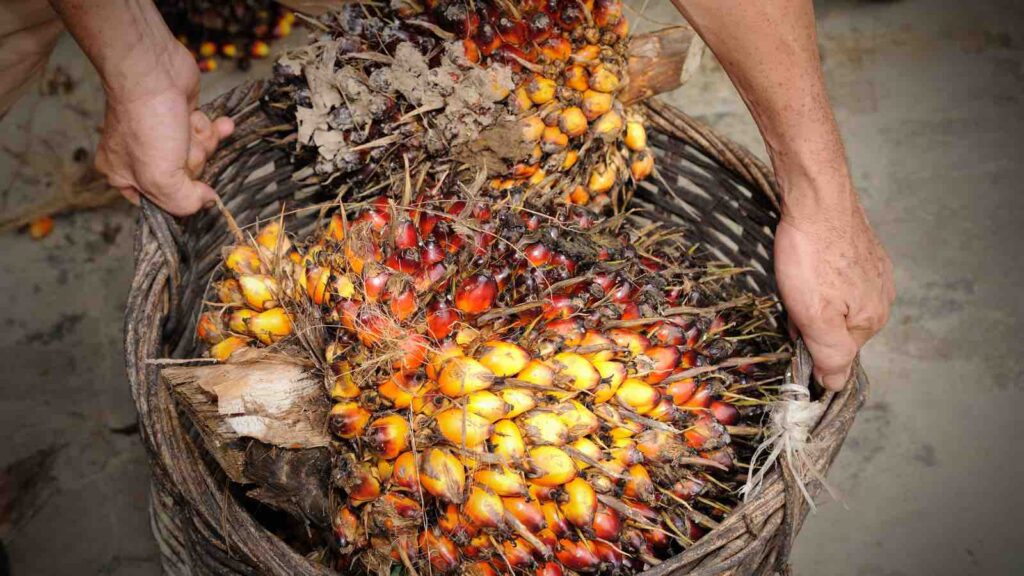Community-based biofuels—tapping into diverse sources like used cooking oil and non-palm crops—could help Indonesia hit its energy targets without the ecological costs, says a new analysis by environmental NGO Madani Berkelanjutan.
Jakarta — As Indonesia races to meet one of the world’s most ambitious biodiesel mandates, a new analysis warns that its heavy reliance on palm oil could cost the nation billions in ecological destruction and social conflict. But a community-based approach, focused on diversifying feedstocks and decentralizing production, could deliver the same energy goals — at zero environmental cost.
Environmental NGO Madani Berkelanjutan has unveiled a comprehensive comparison of two diverging biofuel futures. On one hand, the business-as-usual (BAU) model leans heavily on expanding palm oil plantations, threatening forests and rural communities. On the other, a localized, diversified strategy offers an economically viable and ecologically sustainable path forward.
RELEVANT SUSTAINABLE GOALS



The Cost of Business as Usual: Forests, Communities, and Billions at Risk
Under Indonesia’s current plan, every liter of diesel sold must contain 40% palm-based biodiesel (B40), with a ramp-up to 50% (B50) by 2026. That shift will require 18 million metric tons of crude palm oil — a demand that could only be met, analysts say, by converting an additional 4.72 million hectares of land into palm plantations.
The environmental cost? Up to $4.72 billion in ecological and social damages. Deforestation, carbon emissions, and land conflicts could follow as a direct result of this industrial-scale expansion. And despite the projected economic gain of $31.36 billion, Madani found that most of the benefits would go to large corporations, while rural communities — those most affected by land use change — would see minimal returns.
“The economic growth comes at a steep cost to forests, biodiversity, and social harmony,” the report concludes.
An Alternative Path: Local Biodiesel, Zero Deforestation
Madani’s alternative scenario flips the equation.
Rather than expanding plantations, it proposes increasing productivity on the 9 million hectares of aging oil palm plantations already in existence. By replanting and introducing best agricultural practices, yields could nearly double — from 3.41 to 6 metric tons per hectare — eliminating the need for new deforestation.
A key pillar of this model is community empowerment. Village-owned cooperatives and small-scale enterprises would produce up to 10% of the national biodiesel supply using locally sourced feedstocks like used cooking oil and seeds from the rubber and nyamplung trees.
“There are many options. Jatropha, for instance, doesn’t need vast land and can be handled by village-owned enterprises,” said Giorgio Budi Indrarto, Madani’s deputy director.
A Sensible Solution in a Time of Crisis
What makes the alternative model truly striking is its net benefit: $37.1 billion, higher than the BAU scenario — and without incurring any external environmental or social costs.
Unlike the BAU route, which teeters on violating a 17.3-million-hectare palm oil cap set to protect conservation zones, peatlands, and biodiversity hotspots, the community-based plan respects ecological limits. It also aligns with Indonesia’s broader goals of a just energy transition, climate resilience, and rural development.
“Indonesia must prioritize palm oil intensification over expansion,” said Hadi Saputra, head of research at Sawit Watch. “Many existing plantations still have low productivity.”
The heart of Madani’s proposal lies in democratizing energy production. Rather than relying solely on corporate-driven monocultures, the plan places power — both figuratively and literally — in the hands of rural Indonesians.
Over a decade, this approach is projected to inject $2 billion into the rural economy, while avoiding deforestation, protecting biodiversity, and preserving community land rights.
“By producing biodiesel from local commodities, we enable villages to benefit economically without harming the environment,” Giorgio emphasized. “This isn’t about being pessimistic. It’s about being sensible.”
Charting a New Course for Indonesia’s Green Energy Transitions
With climate change accelerating and deforestation drawing international scrutiny, Indonesia’s biofuel strategy stands at a crossroads. The choice, analysts say, is clear: continue down a path that endangers forests and people, or pivot to a model that delivers environmental, economic, and social dividends.
As the nation moves closer to its net-zero targets, Madani’s analysis offers a roadmap not just for energy sovereignty, but for sustainable development rooted in equity and ecological integrity.
“We face multiple crises,” Giorgio said. “What we need now is rational thinking — and the courage to act on it.”
You may also be interested in :
Deforestation, Carbon Reduction, and Inclusion: RSPO Leads Palm Oil Transformation





